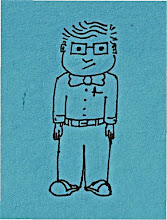I had planned on being a teacher since I was a junior in high school and I determined that it was impractical for me to become a spy. This realization is its own chapter in my life that culminated with the worst planned prank in the history of prep school malfeasance, a stolen VHS copy of Forrest Gump, and the loss of virginity (not mine) in the back of a station wagon. But in December 1999, standing in the Registrar’s office at Macalester College, about to sign up for my last semester, I realized I didn’t want to teach. I wanted to write.
My parents’ recent divorce had filled me with clichéd angst and a conventional disregard for convention. There was something domestic and permanent about becoming a teacher in the Midwest. I felt like I was marrying someone while already planning the divorce.
The problem was that during the fall semester I wrote three pretty good short stories. One about some kids who fill their house up with water, another about two old friends who try to rob a 24-hour donut shop in LaCrosse, WI, and the last was about what would happen if they changed the formula for water.
No one warned me that an English minor is the most useless thing you can get out of your college education, so I erased all the education classes from my registration and quixotically signed up for: Advanced Fiction Writing and Writing the Autobiography and Personal Essay. That spring I wrote over 200 pages of original material. All of which sucked balls.
But I loved writing fiction. Even in the autobiography class I wrote all about my evil twin brother Dante, confessing all the most embarrassing chapters of my life on his timidity and naïve mischievousness.
My favorite moment of that spring semester was the day when they brought some mildly successful poet to talk to all of our classes, she was getting recognition at a literary event that evening at the school and she talked about writing poetry and we read some of her poetry and it was all terrible (except for one or two of the poems we read that she had collaborated with her 7-year-old son to write – I’m not kidding). But I was not overly hubristic, and was perfectly willing to accept that I might have absolutely no barometer for judging poetry.
She came to our advanced fiction class and she started talking about how she could never write fiction because she could never be dishonest with her writing. And I snapped. She had just called fiction writers liars. She just called me a liar. And if there is one thing I am not (was not) it is a liar.
“I think poetry is honest, and I don’t think I could ever write anything that was made up.”
“Writing fiction isn’t just making things up,” I said. “It’s finding truth in fictional events.”
“But the events are fictional and there’s something dishonest about that.”
“So, everything you’ve ever written is true and we’re all liars?”
Diane Glancy, our professor, stepped in before I could inform her that her 7-year-old son was a way better poet than her. But the damage was done. From that moment on I would hate poetry with all of my heart.
This has made the reading of Shakespeare’s Sonnets the least-anticipated undertaking of my Year of Reading Shakespeare.
17
Who will believe my verse in time to come,
If it were filled with your most high deserts?
Though yet, heaven knows, it is but as a tomb,
Which hides your life, and shows not half your parts:
If I could write the beauty of your eyes,
And in fresh numbers number all your graces,
The age to come would say, “This poet lies;
Such heavenly touches ne’er touched earthly faces.”
So should my papers (yellowed with their age)
Be scorned, like old men of less truth than tongue,
And your true rights be termed a poet’s rage,
And stretched metre of an antique song;
But were some child of yours alive that time,
You should live twice: in it, and in my rhyme.
The first 17 poems are all weird. They’re about trying to convince some young man to procreate. I mean look at this one. It’s great at first. Shakespeare says if he could capture the young man’s physical beauty in words then everyone would call him a liar in the future. But if the young man had a child, then there would be genetic proof that his words were honest.
Weird.
For one thing, Shakes, kids don’t always look like their parents, sometimes they look way different and goofy. But my favorite part here is the fear he has that in the future someone will say: “This poet lies.”
William Shakespeare’s words are so exaggerative and complimentary, they are so evocative and opulent that no one human could ever achieve the prettiness they describe.
So yes, William, I say this poet lies. This poet embellishes and prettifies and intentionally misleads. And it’s all good. Honesty ain’t all it’s cracked up to be.
It behooves the written word to write the world better than it is. How else is it supposed to compete with television?

Or the interweb for that matter. I think your behooves is quite correct. I think this sonnet rocks up to the final couplet which is trite and a thought he repeats better in the final couplet of sonnet 18 and 81.
ReplyDeleteBut enough analysis. I linked your blog for the 2nd time I believe. Here on FB:
http://www.facebook.com/group.php?gid=119899154688265#!/group.php?gid=119899154688265
you can join to see or take my word for it (i'm no ghost). You have to want to be a member.
Last summer's holiday was in Grand Rapids, Mn, which is you neighbourhood right?
cheers
WIll